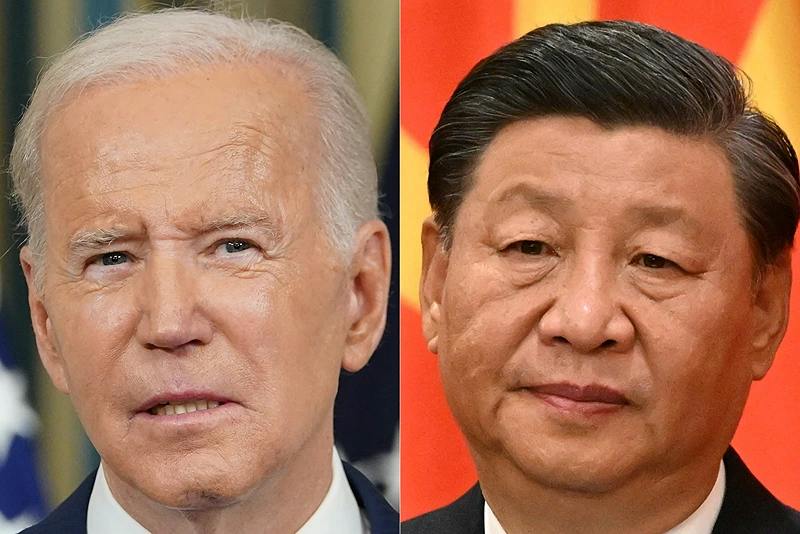Mr. Socrates Goes To Beijing
He gave his well-known 1950 Hillel House lectures. “Jerusalem and Athens,” Leo Strauss presented a vision that he saw in what he called a fundamental but complementary tension between Jerusalem, Athens or Scripture and philosophy. Although Strauss might be criticized by Christian theologians, scholars, laymen, and others might advocate for a more comprehensive view of Western civilization’s sources, Strauss has at least one point right. Without Greek philosophy or the Bible, Western civilization would not exist as it is today.
The West’s current attempt to destroy, alter, or abolish Western civilization has led to the destruction of the Bible and the Classics. Even critics of Western civilization realize this. “classical civilization” This is one the most important pillars in the West. In order to discredit or even remodel the West’s structure, it is necessary to abandon our traditional understandings about Rome and Greece.
Princeton University Press has published her latest work. “Plato Goes to China: The Classics and Chinese Nationalism,” Shadi Bartsch from the University of Chicago explores the fact that Chinese thinkers have long recognized the significance of the West’s classical Greek political thought and have developed a loving/hating relationship with Greek thought.
Bartsch’s books are based on a series she delivered at Oberlin College 2018 which, she acknowledges, caused some controversy in China. Bartsch’s writings are particularly relevant to our times, considering that in America, mainstream education has fallen into disorientation, and is under threat. “little platoons” Co-ops for homeschooling, Christian private schools and conservative colleges are all drawing on the West’s rich classical heritage and creating a new era. China, Bartsch points out, is also experiencing similar phenomena.
Bartsch starts her book with an overview of the Jesuits famous attempt in 17th century to appease Chinese intellectuals by incorporating Chinese thought into Christianity. Bartsch also points out that the Jesuits used Greek philosophy to evangelize the Chinese. Euclid’s works were brought by the Jesuits. “Elements” To the court of the Emperor, and to the Jesuit Fr. Matteo Ricci was a famous Confucian scholar who translated the Stoic Epictetus teachings for Chinese consumption. St. Thomas Aquinas further introduced Aristotle. “Summa Theologia.”
China’s interaction with Western thought ended abruptly due to China’s recurrent view of China as a “colonial” country. “Celestial Empire” They had no lessons to take from the outsiders, so their efforts were mostly futile.
However, the interest in Western classics returned to the end of 19th century and the beginning of the 20th century when some Chinese intellectuals during Qing Dynasty sought reform for their country. Aristotle’s first article. “Politics” The New Citizen journal published China in 1898. Liang Qichao, a Chinese ex-patriot living in Japan, edited The New Citizen. Aristotle’s ideas helped to introduce the idea of a “New Citizen”. “citizen” In a China used to the idea of “subject” For those who are under the rule the aristocratic classes.
The Confucian intellectualsia reacted with confusion and resistance to these new liberal ideas, which were rooted in Greek classics. Bartsch maintains that Chinese 20th-century interest in Greek thought continued, though with some exceptions.
The post-Tiananmen, as Bartsch describes them “crackdown,” Chinese thinkers, some under coercion, began to question Western thought and the classics specifically. In 1992, a group of Chinese thinkers wrote a well-known article called “The Chinese Thinkers’.” “Realistic Responses and Strategic Choices for China after the Disintegration of the Soviet Union.” This seminal text was later used to spur the evolution of what Bartsch called the “Neo-Conservatives and political Confucians,” They still dominate large parts of modern Chinese thought. This book argued against European Marxism, and for traditional Chinese thought.
Some people in China today argue for Western classical thought to be studied again. This group is found in institutions like the Peking University Centre of Western Classical Studies as well as at classics faculty at Fudan University or Shanghai Normal University. However, these scholars tend to be apolitical. Another group of Chinese thinkers attempts to marry classical Greek thought with the socialist-Confucian model that is used by the Chinese Communist Party of 21st Century (CCP).
A significant number of Chinese thinkers, nonetheless, view classical thought as the source of corruption in the West or a means to critique the West — thinkers such as Eric X. Li, for example, penned a 2012 piece in The New York Times arguing that both the democracy of ancient Athens and that of the United States were allegedly limited and imperfect manifestations of democracy, which itself is an anomaly in world history.
Bartsch’s final chapter, “Thoughts for the Present,” The discussion focuses on the U.S.-Sino relationship’s future projections and the role of classics in America. Bartsch points out the irony of 21st century Chinese intellectuals having a higher appreciation for classics than Westerners.
Bartsch points out, however, that China’s attack on Aristotle and Plato is centered on a few passages in ancient Greek thoughters’ works, instead of a more nuanced and rich vision of two of world’s most significant thinkers.
Bartsch concludes her chapter by pointing out that American contemporary thinkers have also taken inspiration from the classics in order to fulfill their own purposes. Graham Allison (Harvard Government Professor), in 2017’s work “Destined for War: Can America and China Escape Thucydides’s Trap,” Arguments for an inexorable conflict with China Thucydides made a famous comment in “The Peloponnesian War” This “The growth of the power of Athens, and the alarm which this inspired in Sparta, made war inevitable.” Allison also argues that China’s rise to power could lead to an opposing effect on current American government.
Bartsch points out that the Chinese haven’t responded to this assessment well. Guo Jiping (a pseudonymous Chinese author) responded to Allison’s assessment with an editorial in People’s Daily arguing for cooperation rather than competition between China, United States.
Bartsch’s book is shocking in that nearly every Chinese thinker at the academy works for China’s betterment. While some of the thinkers believe that China should adopt Western techniques, others argue for China to stick with a traditional approach. “purely” Chinese model. Yet, they work for the good of their nation. These observations are not meant to be a criticism of the Chinese Communist Party’s use of totalitarian tactics to maintain their intellectuals on the right track. China does not hesitate to use its totalitarian muscles, as evidenced by recent Covid lockdowns and rumblings about attempts to bring Taiwan under CCP control (not to forget a series of invading balloon launches).
Instead, it is important to acknowledge the intellectual homogenity of China. The West’s former post-Enlightenment liberty of inquiry within academia has become a new form of totalitarianism where academics argue almost unanimously for modification, or even the destruction, of their own nation. Although it is not clear how or if the West can overcome this crisis, there are many intellectual sources that will allow us to reclaim our ancient tradition.
Shadi Bartsch’s book can be found here. “Plato Goes to China: The Classics and Chinese Nationalism,” here.
Jesse Russell reviews books for Regenery Press. He is also a contributor to Front Porch Republic, European Conservative and Catholic World.
“From Mr. Socrates Goes To Beijing”
“The views and opinions expressed here are solely those of the author of the article and not necessarily shared or endorsed by Conservative News Daily”
" Conservative News Daily does not always share or support the views and opinions expressed here; they are just those of the writer."




